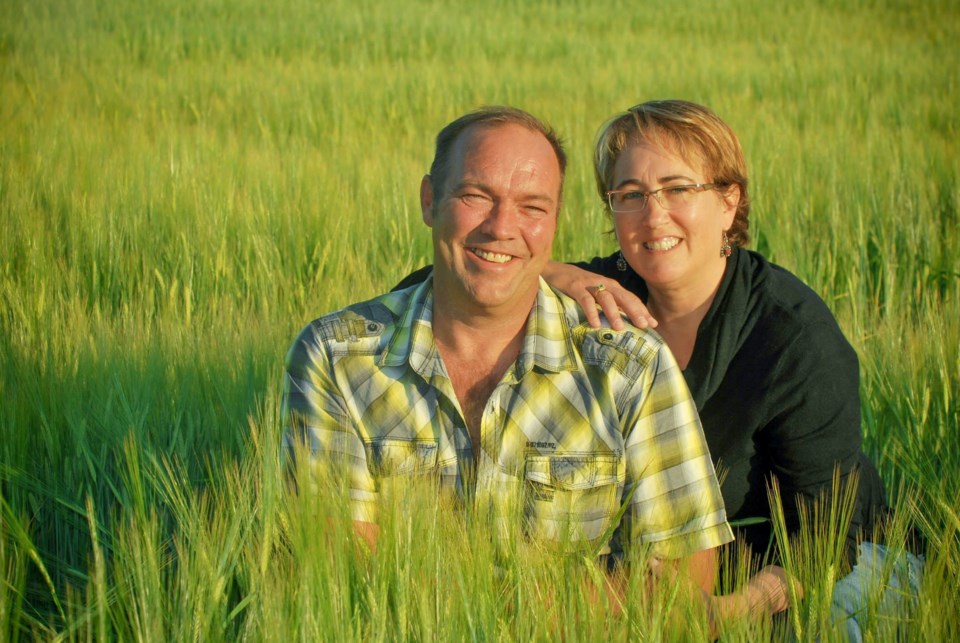From its family-oriented operation to the label’s loon graphic, everything about Rheault Distillery’s Loon Vodka exudes Canadiana. But the response from critics and connoisseurs alike suggests its pedigree is world-class.
The Hearst product has been on LCBO shelves for less than a month and already it’s outselling premier brands like French-made Grey Goose in Northern Ontario outlets.
Loon falls into the category of an “alpha vodka,” delineated from traditional high-end vodkas by standards set in 1600s Russia by the Romanov dynasty, explains Marcel Rheault, the distillery’s owner and chief distiller. Only five companies worldwide put their spirits through the rigorous process.
“To be an alpha vodka, you have to use wheat or rye, and then after that you have to distill it at least four times,” Rheault said. “Then, when you have your alcohol analyzed, you have to have less than .002 per cent methanol.”
Methanol – the compound that leads to nasty headaches when too much alcohol is consumed – hovers around the .6 per cent mark in high-end brands.
Rheault grows his own barley from a variety imported from Scotland and all his production is done on site. Stephen Peltonen, a Native artist from Hearst whose work was incorporated at the 2010 Vancouver Olympics, designed the label artwork. It’s all part of Rheault’s commitment to creating an “authentic” product.
A farmer and inventor, Rheault had been growing hydroponic cucumbers for 15 years and perfecting a greenhouse design before entering the distilling business. His success caught the attention of the agricultural department at the University of Guelph, with which he collaborated on several projects.
After a crash course in distilling at Michigan State University, Rheault spent two years working with some of the most renowned producers in the United States, including Smugglers’ Notch Distillery in Vermont, which won the best vodka title in 2011, and Cold River Vodka of Maine, which took the title four years in a row.
“They showed me quite a bit, those guys,” Rheault said. “They didn’t mind because I was in Northern Ontario, so they didn’t see me as the competition.”
Testimonials for Loon have been effusive. One, from a Timmins fancier who arranged a blind taste-testing of what he considered to be the world’s best vodkas, said all 10 participants chose Loon over more mainstream brands.
Loon’s performance at the 2014 San Francisco World Spirits Competition secured its place as an emerging star on the spirits scene. After the vodka earned a silver medal in its category – amongst 1,480 entries – the LCBO ordered an additional 120 cases. The recipe had only been perfected eight months earlier, and Rheault was thrilled with the result.
“At the beginning, when we sent it in, I said I just want to see where I stand, (hoping to be) at least in the top 100,” Rheault chuckled. “I wasn’t thinking of winning a silver medal, but it happened. I was really impressed when we won that.”
Michael Fagan, the well-known Ontario wine guru who recently retired from the LCBO, met up with Rheault and his wife, Mireille Morin, at the Royal Agricultural Winter Fair in Toronto last November. He was impressed with the family’s “pioneer spirit” and its attempt to create a new industry for Northern Ontario.
Just as southern Ontario tobacco fields are making way for vineyards, Northern Ontario, too, can re-envision its traditional industries, he said.
“I think there’s still a growing trend toward local and home-produced,” Fagan said. “We’ve done extremely well with wines. The Ontario wine industry continues to expand and new emerging areas are being discovered across the province; it’s no longer just Niagara.”
Though there’s been a long tradition of distilling in Ontario and countrywide, the focus has been on larger companies, Fagan said. As more microdistilleries flourish, so will the burgeoning distilling industry, he predicted.
“With Marcel’s idea…he’s planning on growing his own grain for the wheat, and it’s trying to make it sustainable and trying to get into that small but emerging segment of craft distilling,” Fagan said.
Rheault will expand his operation with a 5,000-square-foot building this summer, and a 1,000-litre still is on order. It will allow him to produce four times what he’s producing now. That capacity reaches beyond his current needs, but if growth continues, he’ll eventually need it.
He acknowledges the next big step for Loon is marketing. The coming expansion should allow him to hire more staff so he can devote more time to in-store tastings across the province.
“I think, if you want to pay $45 for a bottle of vodka, a lot of people would like to taste it before spending that kind of money,” Rheault said.
Rheault contends his partnership with LCBO has been integral for distribution. Standing out in a competitive market is essential or “you’re going to be swallowed,” he said.
“If I want to do competition with all the guys that are out there, I’ve gotta do something superior than what they’re doing, because it’s a really big business,” he said.
In addition to its Loon Vodka, Rheault Distillery also produces whiskey, growing the barley on site from a variety imported from Scotland, along with raspberry and cherry liqueurs, which Rheault expects to see on LCBO shelves in coming years.




